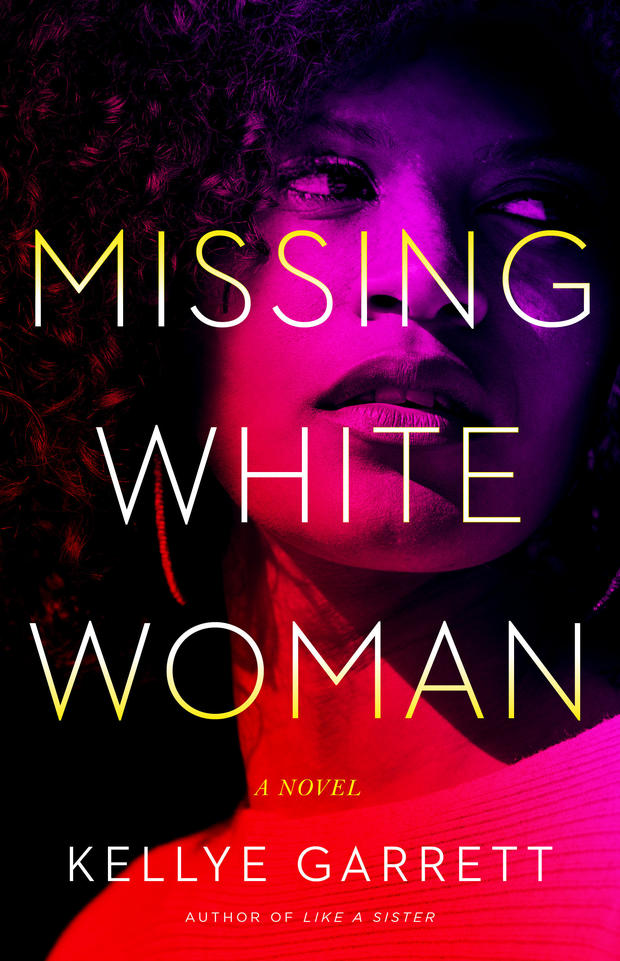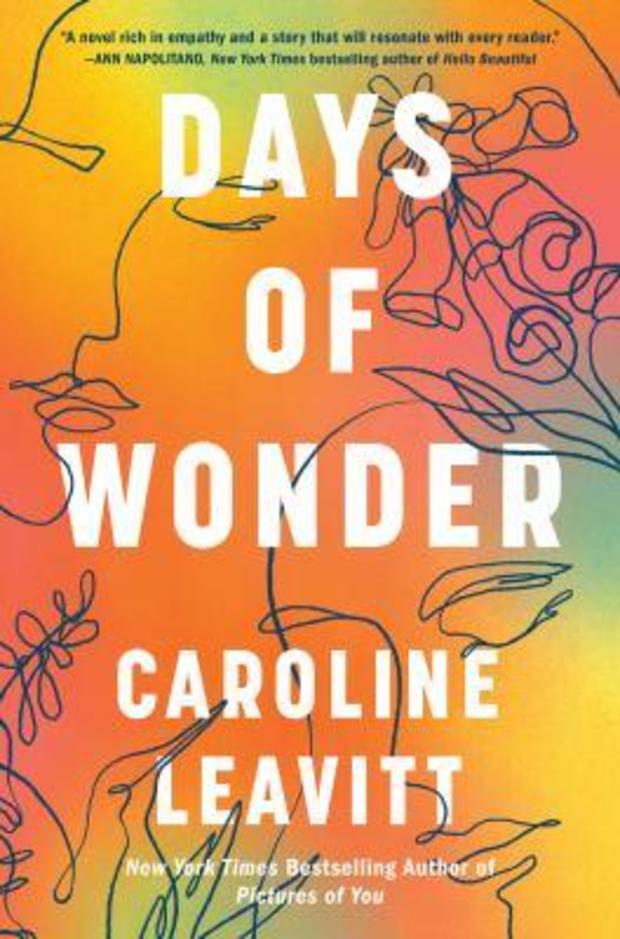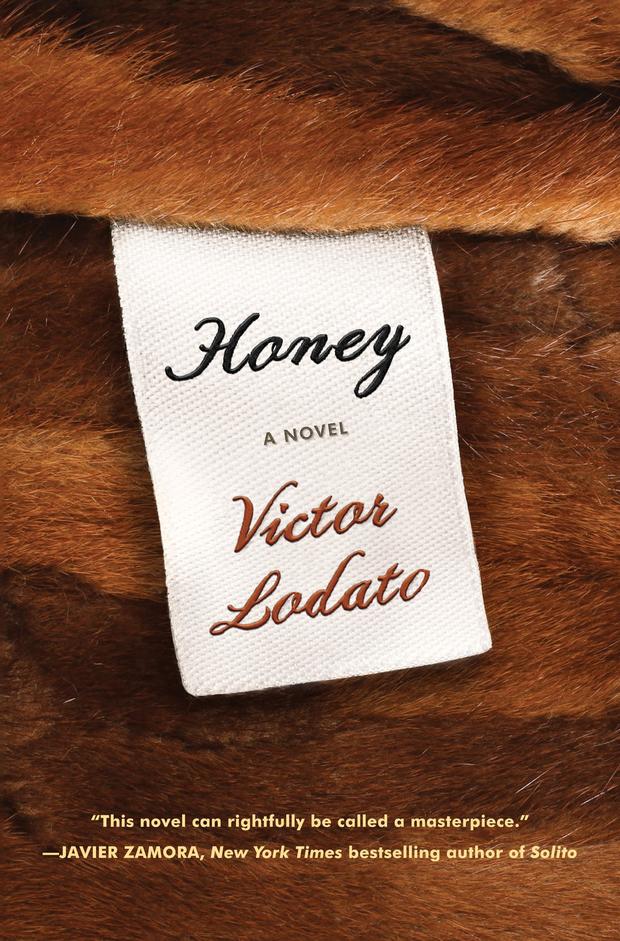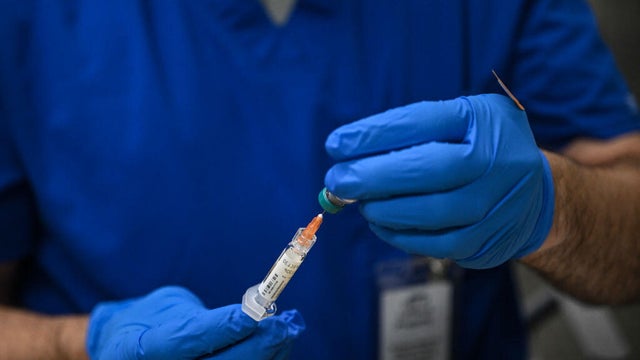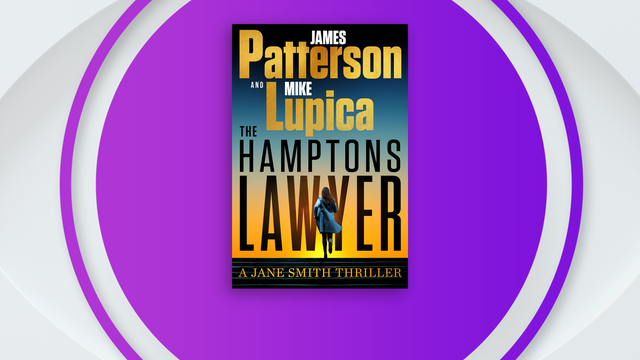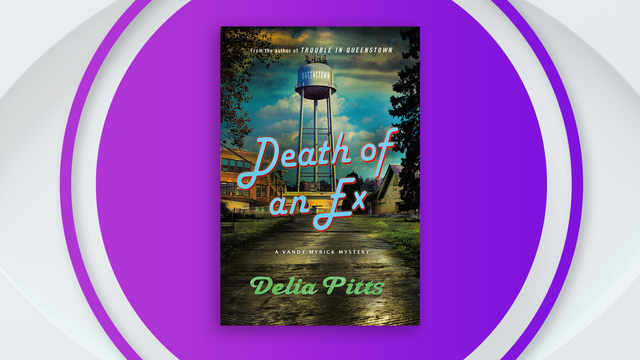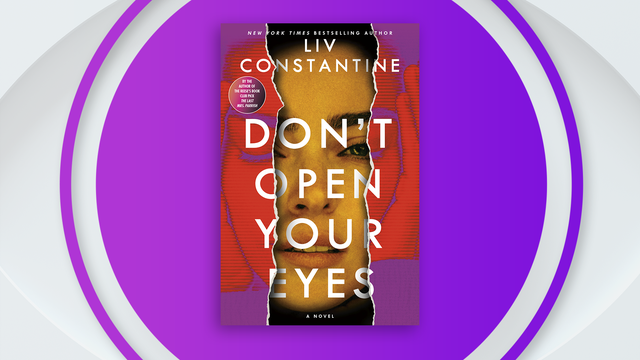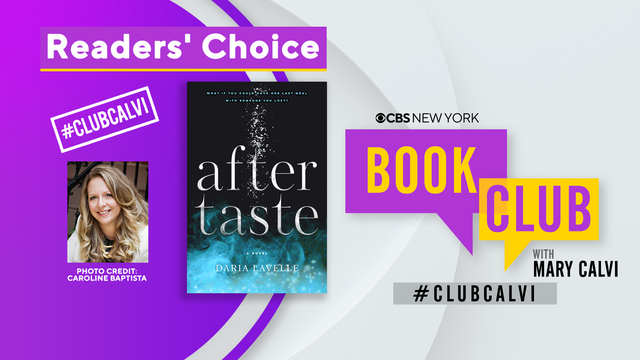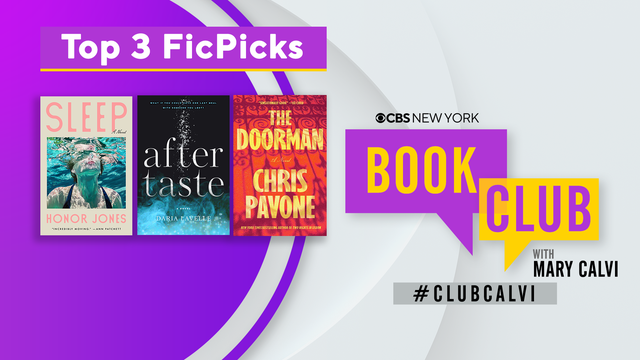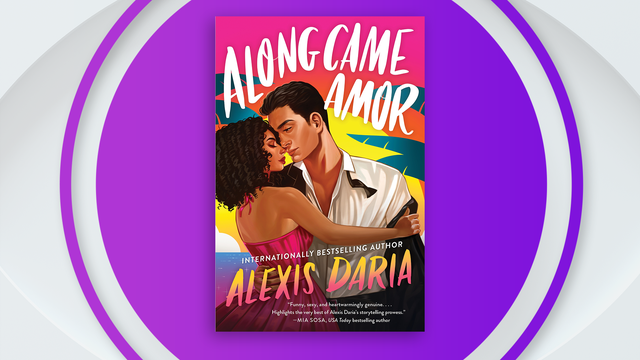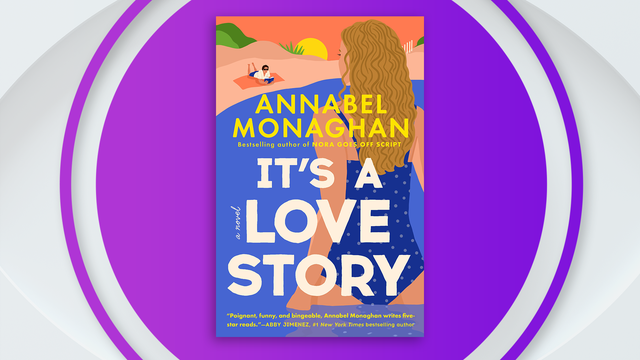The CBS New York Book Club reveals the latest Top 3 FicPicks
This content is sponsored by Cohen's Fashion Optical.
Please consider joining our Facebook group by CLICKING HERE.
Find out more about the books below.
Three novels, one Readers' Choice. Vote now for Club Calvi's next book
Three women seeking truth, redemption, and possible revenge are the main characters in Club Calvi's latest Top 3 FicPicks. The books are: "Missing White Woman" by Kellye Garrett, "Days of Wonder" by Caroline Leavitt, and "Honey" by Victor Lodato.
You may want to read each novel, but only one can be our Readers' Choice. Read the excerpts below, and cast your vote now! These books may have adult themes.
Voting ended on Sunday, April 28 at 6 pm. We will reveal the Readers' Choice on Tuesday, April 30.
Prefer to listen? Audible has a 30-day free trial available right now.
"Missing White Woman" by Kellye Garrett
From the publisher: It was supposed to be a romantic getaway weekend in New York City. Breanna's new boyfriend, Ty, took care of everything-the train tickets, the dinner reservations, the rented four-story luxury rowhouse in Jersey City with a beautiful view of the Manhattan skyline. But when Bree comes downstairs their final morning, she's shocked. There's a stranger laying dead in the foyer, and Ty is nowhere to be found.
A Black woman alone in a new city, Bree is stranded and out of her depth-especially when it becomes clear the dead woman is none other than Janelle Beckett, the missing woman the entire Internet has become obsessed with. There's only one person Bree can turn to: her ex-best friend, a lawyer with whom she shares a very complicated past. As the police and a social media mob close in, all looking for #JusticeForJanelle, Bree realizes that the only way she can help Ty-or herself-is to figure out what really happened that last night.
Kellye Garrett is a New Jersey native.
"Missing White Woman" by Kellye Garrett (Hardcover) $29
"Missing White Woman" by Kellye Garrett (Kindle) $15
"Days of Wonder" by Caroline Leavitt
From the publisher: As a teenager, for a moment, Ella Fitchburg found love-yearning, breathless love-that consumed both her and her boyfriend, Jude, as they wandered the streets of New York City together. But her glorious life was pulled out from beneath her after she was accused of trying to murder Jude's father, an imperious superior court judge. When she learns she's pregnant shortly after receiving a long prison sentence, she reluctantly decides to give up the child.
Ella is released from prison after serving only six years and is desperate to turn the page on a new life, but she can't seem to let go of her past. With only an address as a possible lead, she moves to Ann Arbor, Michigan, determined to get her daughter back. Hiding her identity and living in a constant state of deception, she finds that what she's been searching for all along is a way to uncover-and live with-the truth. Yet a central mystery endures: neither Jude nor Ella can remember the events leading up to the attempted murder-that fateful night which led to Ella's conviction.
Caroline Leavitt lives in Hoboken, NJ.
"Days of Wonder" by Caroline Leavitt (Hardcover) $29
"Days of Wonder" by Caroline Leavitt (Kindle) $15
"Honey" by Victor Lodato
From the publisher: Honey Fasinga, the glamorous daughter of a notorious New Jersey mobster, is returning home at last, ready to reckon with her violent past. As a rebellious teenager, Honey managed to escape her father's circle of influence and reinvent herself in a world of art and beauty, working for a high-end auction house in Los Angeles. Now in her twilight years, she decides to return home and unexpectedly falls in love. But in her family, nothing has changed. When her grandnephew Michael bursts into her life in what appears to be a drug-fueled frenzy, and her Lexus gets jacked, it's hard to keep minding her own business. As old cruelties begin to resurface, Honey is no longer sure what she really wants—to forgive or to avenge.
Victor Lodato was born and raised in New Jersey.
"Honey" by Victor Lodato (Hardcover) $31
"Honey" by Victor Lodato (Kindle) $15
Excerpt: "Missing White Woman" by Kellye Garrett
ONE
I was going to jail.
I knew it. She knew it too. I could tell by the way she looked over at me—or rather didn't. We were the only two people on this block of fancy-schmancy row houses. A thin sliver of grass and a fence at half-mast separating the two of us.
When she came through the wrought-iron front gate, I was already feeling as lost as Dorothy in Oz and ready to give anything to snap my ASICS together to get back to Maryland. So I was excited when I first heard the gate slam the next house over. I'd even smiled initially when I looked back at her, convinced her sudden appearance was a good thing. That finally there was someone who could help me. My Glinda.
I couldn't see much of her. Not at first with the sun being long gone and the darkness turning her into just a skinny blob. She didn't take human form until she passed through the remnants of the floodlight from the house attached to the other side. And even then, I couldn't make out more than a square inch of her face. Blame a face mask as red and sparkly as a pair of ruby slippers. But I didn't need to make out a nose, a pair of eyes, perfectly contoured cheekbones, blond hair, to tell she was pretty. The accessories filled in the blanks. Black jumpsuit. Rose-gold hardback suitcase. Stilettos. She even somehow managed to not look ridiculous wearing sunglasses at night.
She looked like she belonged there. Like she was the one taking a long weekend jaunt with her new boyfriend to a city she'd never been to, with keyless door locks, four-story row houses, and unobstructed views of the Manhattan skyline.
I, on the other hand, looked like someone standing in the dark outside a place I didn't belong, trying to get in without a key. It was exactly who I was and what I was doing. My outfit was wrong. Target. Suitcase was wrong. Amazon. Skin was wrong. Brown. Hair—kinky and get- ting bigger by the second—was definitely wrong too. The most expensive things on me were my sneakers.
She didn't look in my direction for more than a second, pulling her oversized purse closer to her, quickening her step up the stairs to her pitch-black stoop—or whatever they called it in fancy-ass neighbor- hoods like this one. But a nanosecond was probably all she needed.
Good thing I was already about to cry.
Blame the damn door and my inability to get it open. I'd tried three times already. Put in the code Ty had given me. Hit the Key button. Jiggled the knob like it needed some complicated handshake. I did it a fourth time, only to yield the same result. The only change, the new audience of one, looking like she wanted to boo me off the stage like this was the Apollo.
I braved another glance over. I was quick, but she was quicker, turning her head away so fast the crystals on her protective mask looked like sparklers as they caught the light. She'd been watching the latest attempt. Even from a distance—even in the dark—I could make out the pale white manicured hand gripping her cell phone like the weapon it could be in these situations. At least for people who looked like me.
I pulled my own phone out—this one a lifeline. Ty picked up on the second ring.
"Be there in fifteen," he said.
"You're in the Uber?"
"Not yet, but I will be. Packing up now."
My phone said it was already 10:46. He'd sworn he'd pick me up from the train station. Then sworn he'd meet me at the house. He'd been wrong on both counts.
"Oh." It was just a syllable. One I didn't even say that loud, yet he still heard it.
"Everything okay, Bree?"
I glanced over. She was still there standing with the screen door open. Pretending not to watch as she took her own time going inside. "Yeah." I wiped my eye as I spoke. It wasn't the first time I'd lied to him. "It's the code. It doesn't work."
"Really? It worked this morning when I checked in—1018."
"It's 1019." That was the one in the text. The one I'd plugged in four times.
"I'm pretty sure it's 1018. Let me check."
But I didn't wait for him to answer. Just tried the door again, but 1018 this time. It buzzed practically before I hit the Key button. The knob turned as he spoke again, realizing. "I sent you the wrong code."
"It's fine." Another lie.
I glanced over, hoping to catch her watching me again. Nodding as she realized she was wrong. That I wasn't some thief in the night. That I did belong here. That my boyfriend had given me the wrong code. But of course she'd finally disappeared inside.
I shook off the unease and turned my attention back to Ty. "I'll make it up to you," he said.
He'd been saying that a lot since he'd come up to New Jersey on Monday for work, the routine we'd established over the past three months immediately shot to hell. No nightly FaceTimes. No long-winded responses to my texts. And when he did respond, it was just hitting the Heart button or one-word replies sent so late that I'd damn near forgot what he was responding to.
Work.
Always work. Some intense finance job that took a lot of time but also paid a lot of money. Some new project that was dominating most of his working hours and almost as many out of the office as well. It was only after I suggested maybe this weekend wasn't a good time to come that he'd called. Said he still wanted me to take the train up.
Lucky for him, I wasn't one to make a big deal.
"It's fine," I said again as I finally opened the door. It was cold enough inside to give me goose bumps if they hadn't already been there. "I blame those big-ass hands of yours." I was proud of how I sounded. More teasing than annoyed.
He laughed then, the first time I'd heard him do that all week. I was glad too because I loved how it sounded. "Oh, now you have a problem with my big-ass hands. Last week it was—"
I laughed too. "I'm hanging up now."
"Wait."
"Bye, Ty." I tried to stifle a yawn.
"You're gonna wait up for me, right?"
"Bye, Ty."
"Right?"
"Guess you'll have to get here and see."
But we both knew I would—in no makeup but also no bonnet. Happy to see him. Like always.
We both said goodbye and I finally stepped inside, thanking the heavens there wasn't an alarm and that snoop of a neighbor hadn't dialed 911. The cold air felt better than any jail cell I'd been in.
Excerpted from the book MISSING WHITE WOMAN by Kellye Garrett. Copyright © 2024 by Kellye Garrett. Reprinted with permission of Little, Brown and Company. All rights reserved.
Excerpt: "Days of Wonder" by Caroline Leavitt
ONE
New York State
April 2018
Ella stepped through the prison gate, blinded by the sun and the hard blue of the sky, frantically searching the crowd for her mother. At twenty-two, she still felt so, so young, but certainly not the fifteen she had been when she had first arrived here. Freed as if from a box, she stumbled forward but kept her eyes on her feet. If she fell, she knew she wouldn't be able to get up.
Ella clenched the paper bag containing her belongings—everything except for her old cellphone, which the police said they were keeping indefinitely. She craned her neck and rose on tiptoes, searching past the cameras, the shouts, for her mother.
The air felt buttoned too tight about her throat. Colors vibrated, knocking her off balance. The gaping sky looked as if it might swallow her. What scared her the most were the news vans, the reporters rushing toward her, their voices like thorns. Ella. Ella. Ella, they shouted. Ms. Levy. Ms. Levy. And then Mrs. Levy—that one aimed at her mother, Helen.
Though she was surprised by the media's presence, their frenzy was nothing new. They had roiled up public opinion against her from the start. The New York Times had blared: QUEENS TEEN PLOTS MURDER of upper east side judge. The New York Daily News had been even worse: QUEENS KILLER-CUTIE'S ATTEMPTED MURDER. BOYFRIEND'S DAD FED TOXIC TEA. REDHEAD CAUGHT RED-HANDED.
Back then, after the incident, not a day had gone by that she wasn't in the papers, that there hadn't been TV trucks parked on the street at her mother's home, or reporters hounding her mother, shouting at her, picking at her past to find the juiciest morsels, acting as if Helen were to blame too—because in their view she had been a rule breaker with no morals, a single mother who had been banished from her Hasidic community when as a teen she had gotten pregnant. The media searched through everything, finding pictures of Ella from Help, her high school literary magazine, and from the French club, which she had joined to strengthen her résumé. The papers had published photos from Ella's Facebook account, along with the messages she had so carefully crafted—especially those she'd put on Jude's page, including the one she regretted most: I'd do anything for you.
"Ella!" a reporter now shouted. Ella avoided her gaze. "Ella!" someone else cried. "Hey, Red!"
And that was when Ella saw Helen pushing through the crowd, her spine stiff, dressed in heels and a blue business suit, her hair covered by a scarf that also obscured much of her face. "I'm here," Helen said, and even though it was a warm spring day, she guided Ella into a raincoat with a hood, pulling it over Ella's face as she led her to the car. Ella tried to ignore the reporters banging on the roof of the coupe. They were acting as if she didn't deserve to be free at all; and what terrified her more than their pressuring presence was that maybe, just maybe, they were right.
"How do you feel now?" a woman with a microphone shouted. "Has justice been served? What will you do now? Are you going to try to find that boy?"
That boy.
Another reporter jammed his body against the front of the car, shouting and pointing at Helen. "How much did you really know? How could you let all this happen?"
"Will you ever make tea again?" another reporter called.
Helen's mouth twitched.
"What about a garden?" yet another reporter shouted. "Gonna try to grow more foxglove, are you?"
Helen got in the driver's seat and locked all the doors, ignoring the slap of hands on the windows, the way fingers left prints, like evidence.
"Bunch of vulturous jerks," Helen said. "Buckle your seatbelt, please."
Ella did, trying to make herself as small as possible, burrowing down, and then Helen pressed on the gas and jerked the car forward until the reporters got out of the way. Their shouts continued to bounce against the windows.
"Are you happy now?" a woman called after them.
"Screw the whole lot of you," Helen muttered.
To Ella's relief, the media parade didn't follow them for very long. The whole drive to Brooklyn, Ella stared out the window, stunned at the world. How easily people strolled the sidewalks, the young girls busy living a life that she had missed, all of them ambling in and out of shops or just plunking themselves down on a bench, tilting their faces to the sun and taking this wide-open life for granted. The Free World. That's what they had called it in prison, but everyone knew you still wouldn't really be free if you didn't have the right persona, the right chances.
Did she? Would she?
She didn't know how she felt about going to live with her mother. Right now she needed her, but Helen's apartment wasn't really Ella's home. Helen had moved twice while Ella was in prison, trying to get away from the media and the threats, first deeper into Queens—from Flushing to Bayside—and then deep in Southwestern Brooklyn, in Bay Ridge, a place Ella had never seen.
"Your whole life's ahead of you," Helen said now. "Such a miracle! No probation, no parole. Isn't that something? A clean slate!"
Ella wasn't so sure. "I'm still a felon," she said.
Even after crossing the Hudson, it took them an hour to reach South Brooklyn. The neighborhoods blurred into one another, and they finally arrived in Bay Ridge. (Bay Ridge! Who lived in Bay Ridge?) Maybe she wouldn't have to be on such high alert here, Ella thought as she cracked open the car window. She might be left alone.
Excerpted from "Days of Wonder" by Caroline Leavitt. Copyright © 2024 by the author and reprinted by permission of Algonquin Books.
Excerpt: "Honey" by Victor Lodato
As she approached Dante's, Honey could smell the red sauce, the delicate herbaceous green beside the more buoyant thrust of the tomatoes. Then came the pungent rush of perfectly charred meat, the tang of garlic, the eye-closing perfume of melting cheese. And above all of this, like bumblebees trailing pollen, was the golden flower of the olive oil.
Could she really smell these things? She was still a few doors away, so possibly she was having an olfactory hallucination brought on by hunger. She was absolutely starving. That nonsense with Michael had given her a touch of agita, and she'd gone without lunch.
Honey was happy to finally be here, at a restaurant one could trust. As a child, she'd dined at Dante's with her family—and then later with various boyfriends. Even during her time in New York, she'd occasionally come home just to eat here. Sometimes she met her mother for lunch, and they would share a tower of frutti di mare. Dante's never disappointed. For a moment she stood before the crackling neon sign and the big oak doors that were, to those who knew the place, the entrance to paradise.
Goodness, hunger made one nostalgic! Or was that true only for Italians? And then nostalgia led to sentimentality. A spiritual mentor had once advised her to beware of such things. Nostalgia was a lying serpent.
But even as Honey felt it tightening around her neck, she didn't brush it away. Its tongue was forked, wasn't it? Half of it spoke the truth. Because Dante's was a sacred place. I mean, for God's sake, look.
Just outside the door, a basket sat on a small table. It was filled with chanterelles, the first of the season. Their convoluted shape reminded Honey of a hat she'd once worn in the sixties.
During her walk, she'd already decided what to have for dinner: sautéed rapini, followed by the branzino with lemon and capers. But that was out of the question now. She'd be a fool not to order risotto ai funghi, or perhaps pasta al profumo di funghi.
Well, definitely something funghi.
She was reaching for the door when she felt the hand on her shoulder.
And then the kiss on the back of her neck.
Dominic.
She turned and was pleased to see him dressed in the pale violet shirt she'd given him for his birthday. His hair, gray but still thick, was pushed back with that dreadful cream of his that smelled like diesel. Oh, he was a lovely man, and she did not revise that opinion even as he opened his mouth and the Mack truck of his accent hit her in the face.
"Don't you look bew-ti-ful?"
***
"Fanooks," he said later, with disgust, when Honey mentioned Mabel's. They were sitting in one of the mahogany booths, snug as two corpses in a casket, a bottle of blood between them. Dominic had already imbibed quite a bit.
Fanook. It was a word her brother had used, too—a degradation from her father's day, when it had been finocchio. Fennel. Maybe because such men were soft and sweet. Or maybe it had something to do with the fact that fennel seeds were once thrown at homosexuals burned at the stake, to help reduce the stench.
Honey chose not to discuss etymology with Dominic. Instead, she extended her hand and put it over his. "Darling. I have lived near these men, and I've had many friends among them, and I find it intolerable—"
"I'm just saying, if I ever had a son like that—"
"Well, you don't have a son, dear, do you?"
Immediately Dominic's expression changed, and Honey was sorry for her words. Nicky's dead wife, Mary, had never had any children, and Honey could see from the sadness on her friend's face that this hadn't been a choice but rather a decree of fate.
"Let's not argue." She poured him some wine. "But please try to be a bit more open-minded."
He took a deep gulp and nodded. "It's just the way I was brought up."
"Yes, I know. It's a liability for all of us."
Honey was already tipsy from a half glass of Barolo, but she poured herself a splash more. To hell with her blood sugar—she needed a buzz tonight.
"If you want to speak about distasteful men, let's talk about my grandnephew Michael."
Sipping faster than was her habit, Honey proceeded to tell the entire story, from barge-in to broken vessel. The restaurant's walls began to spin. Where was their goddamned soup? She'd pass out soon if she didn't get some sustenance. "And then he just took off in a huff. You should see the tread marks on my driveway."
"Sounds like he's on dope," Dominic said.
"That's what I thought." Honey set down her glass a bit too firmly. "It doesn't matter. I don't even know why I'm telling you all this."
"It's your family. Makes sense you'd be worried."
Honey harrumphed. "I'm not really worried. I just don't understand why he doesn't ask his father for money. Corrado has plenty. Enzo left him very comfortable. And Corrado does a good business, I'm sure."
"Well"—Dominic's voice grew hushed as he looked out to the dining room to make sure no one was listening—"Corrado's not exactly the nicest guy."
"That's true. You know, they keep inviting me over for the holidays."
"You should go. They are family."
That dreadful word again. Honey shrugged. "I'd rather be with you."
Dominic sucked down the last of his wine. "The holidays are hard for me."
Something to do with the dead wife, Honey suspected. Mary had been quite religious—though Dominic, as far as Honey could tell, was not a believer. Still, God or no God, there was no escape from the mystery of loss. Dominic was looking pale suddenly, despite the three glasses of blood. Honey was about to suggest he eat some bread when Signor Tarantelli, the owner, appeared at the table.
He shook Dominic's hand and then kissed Honey's. With a slight bow in her direction, he apologized for the delay with the food. He sounded as if he'd just stepped off the boat from Sicily, though it was all an act—he'd been in the States since he was a child. "We are very busy tonight. The soup is coming any moment. And I give you the wine on the house."
"That's not necessary," said Honey.
"Please, allow me," Signor Tarantelli pleaded—again with a slight bow. "In fact, I bring you another bottle."
His request was so insistent—what could Honey say? She nodded. "Grazie mille."
When the owner walked away, Dominic was smiling and seemed to be suppressing a laugh.
"What?"
"Nothing," he said. "They're still afraid of you."
"Afraid of me? What is that supposed to mean? Signor Tarantelli is a friend. I've been coming here for more than seventy years."
"And your father before you."
"I don't know what you're talking about."
"I'm just saying, he remembers the old days."
From the book Honey by Victor Lodato. Copyright © 2024 by Victor Lodato. Excerpted by permission by Harper, an imprint of HarperCollins Publishers
